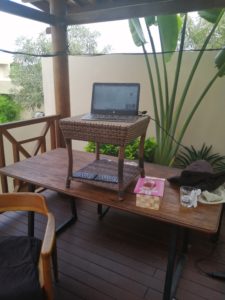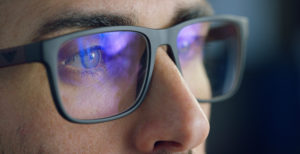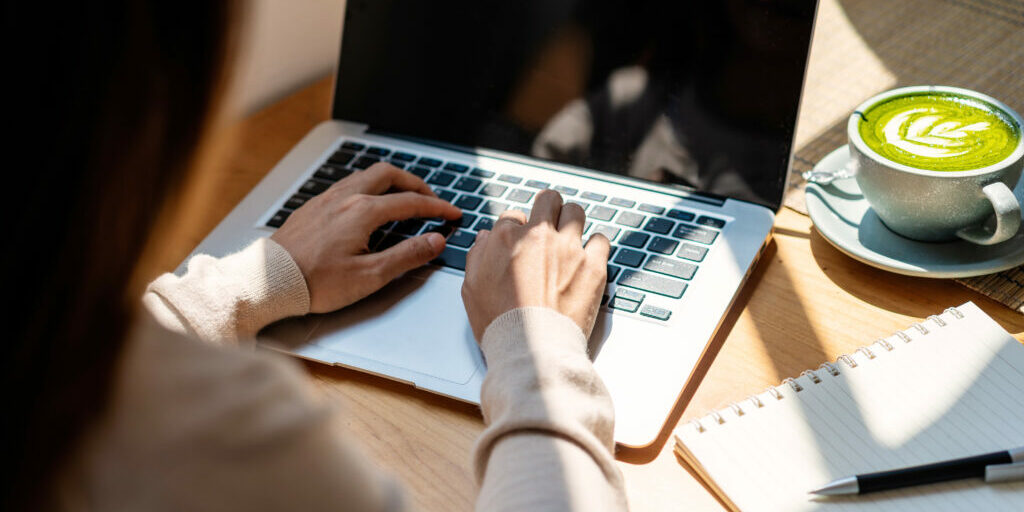Now more than ever there seems to be an increased focus on health and wellbeing. As actuaries we know intellectually the impact good physical and mental health can have on morbidity and mortality rates, but how much attention do we give to our own body and mind health? Sometimes it is just little changes we can make that can lead to big impacts on how we feel and function.
Now 20+ years on from starting my actuarial career journey I would like to think I’m a little more wiser and aware of what makes and breaks a more optimal working body and mind. Often these learnings came from the bumpy road of my own aches and pains and stress, along with learning from others in the health and wellbeing field. So if I could I would go back to my younger self and give some tips and advice on little things I would incorporate into my working day that would have helped me to be better functioning and feel great. Perhaps some of these tips could help you too at whatever stage you are at in life.
To start with, listen to the signals from your body! Your body is great at telling you there is a problem if only we would listen to the feelings we have and not wait until issues get chronic. And then do something to improve the problem. I remember going to an osteopath in my late 20’s as my neck and shoulders were tight and sore and realised I had very limited range in my neck movement when the osteopath asked me to move it – I hadn’t even realised it had got that bad! These days I am much more body aware and on the path to correcting the effects of years of unawareness.
Here are my top tips for connecting to what your body and mind might need in the MOMENT. With my handy mnemonic acronym:
M: movement
O: outdoors exposure
M: mindfulness in breathing and thoughts
E: eat well
N: network
T: toxins reduced
MOVEMENT
Improve posture and flexibility of your body during the day by moving between a variety of positions for working on a computer e.g. if working from home, sit on the floor, as well as at a desk and standing. You can even incorporate stretches into working positions. For a great 5 minutes video summary on this watch this video by Aaron Alexander, who is my go to expert on tips for better body alignment and flexibility: https://youtu.be/8B1I-jeadUQ. He also has a helpful video on sitting postures and stretching to help you be flexible and strong: https://www.alignpodcast.com/masterclass-align.
Here you can see a picture of my makeshift standing desk.

You can even do some self massage while you sit or in a break by rolling a tennis ball under your feet. This is one the SKL team got taught to do regularly. The feet are important to connecting to all parts of the body and can help activate the brain when stimulated. A tennis ball can also come in handy for a self back massage by rolling it between your back and a wall while standing up.
Take regular breaks from work to move around. Be aware where there might be some aches in the body and do what feels good to help them e,g. some stretches, taking a walk, doing some squats, swinging the arms around. Even your eyes need a break from close up work and benefit from movement – regularly staring in the distance can help reduce stress and improve eyesight.
OUTDOORS

Get outside in nature if you can for some of the day. Going for a walk outside is a good way to get some movement, relax those eyes and de-stress. Taking in natural light into the eyes also helps your circadian rhythms to feel more awake in the day and sleep better at night, as well as a host of other health benefits.
If you can get barefoot and connect with the ground then even better. Known as grounding or earthing, this has been shown to reduce inflammation in the body and also reduce feelings of stress.
Back in my actuarial study days I would sit outside to study if the weather permitted and it definitely helped me stay more awake than studying inside! If I had documents to review at work then on occasion I would take them outside to read and review. Now with more flexible working I sit outside as much as possible to work in a more natural environment.
MINDFULNESS

Be more mindful of breathing patterns and thoughts in the moment. Nasal breathe as much as possible which is much better for you than mouth breathing. If you feel stressed then focusing on regulating your breathing with longer exhales than inhales can help calm you down. When I’ve been in intense situations with people where I feel my anxiety levels rising and feelings getting out of control then focusing on slowing my breathing down has really helped me not to feel too overwhelmed. If possible have a regular time in the day to mediate or do a breathing practice which can help reduce overall stress levels and increase focus when working.
Our self-talk in our mind is constant and we may not even be aware of what it is we are saying to ourselves most of the time. Having greater awareness and control over our thoughts can greatly impact our wellbeing. Replacing negative thoughts with more encouraging ones can help with managing stress and also impacts the body positively as what we think and feel is in a constant feedback loop. Visualising the optimal outcome of what we want to happen and how we want to feel can really help in making it happen and feeling better in the moment. There is huge potential in the power of our mind to heal the body and make things happen positively or negatively for us.
EAT WELL

What we put into our bodies greatly impacts how our body and mind performs. Food and drink is the fuel that our body uses to convert into energy and keep us functioning well. The gut is also known as the second brain and a healthy gut leads to a better functioning brain. So be aware of what you eat and drink and how it affects you, and make changes to your diet as needed. Go for better quality, less processed, and nutrient dense food where you can.
I remember eating pizza for lunch and then attempting to write minutes in an afternoon meeting with my eyes closed as I just couldn’t keep them open, the afternoon sleepiness was so bad. Attempting to decipher my scribbles after to write up was no fun either! Having learnt a lot more about optimal nutrition since then, switching my lunch to healthier options of salad and protein to cut down the processed carbs really helped get rid of the afternoon slump for me and keep my blood sugar more stable for more sustained energy levels. Having on hand healthy snack alternatives to reach for when the munchies kicked in also helped.
NETWORK
Interactions with others can be a good way to help stress relief get out of our heads. In my office working days a short chat with a colleague, whether incidentally while passing each other or intentionally, could help distract me from an issue I was ruminating on to help break the unhelpful thought cycle and lift my mood. Often a solution can come to us when we take a break from thinking on it because when the mind is more relaxed, the solutions can be easier to come by.
Being open to brief chats with others also help build good relationships. This has benefited me at work as I’ve solved issues quicker when colleagues have been more willing to help out and we have a greater understanding of what one another does, all from taking a little time out for some friendly banter.
Now with more working from home we may need to be more intentional in our social interactions and so may take a bit more planning.
TOXINS
Not everything or everyone we encounter is beneficial – be aware of the energy givers and energy takers in your life. Some may be more obvious than others. We usually recognise the people that can bring us down and limit exposure to them, and are also aware of ‘toxic’ foods like processed sugars etc that can cause issues. But there can also be less obvious toxins in our environment that I have experienced detrimental health effects from and others may be more sensitive to as well:
- Artificial light can be draining, cause headaches and disrupt our ability to achieve deep sleep. If this affects you then you could try some blue-light blocking glasses, or programs for your computer and phone that cut out some of the more harmful bright artificial light. For a short time I wore a cap and some yellow lens blue-light blockers when I had a particularly bright light right above me in a new office, until I arranged for the bulb to be taken out. Ok I felt a bit ridiculous but at least my head felt better! With home working we can have greater control over the lighting we use.

-
Mould, which is sometimes more obvious or can be hidden, can really be harmful if the spores get in our bodies causing a range of problems from brain fog to joint pain and tiredness. Older buildings and previous water leaks can be an indication that mould might be present. Get rid of it or avoid if you can!
-
Chemicals in products we put on our body and clean with can cause harm. These can kill off our beneficial microbiome on and in our bodies, be cancer inducing, hormone and neurological disruptors and other issues! So where possible use more natural alternatives. Pesticides sprayed on food we may eat can also cause problems and best avoided.
SUMMARY
We have usually developed a curious intellect when it comes to analysing data for our jobs, so let’s get curious about the data signals our body and mind gives us and not ignore when something doesn’t feel right. See if you can decipher what the problem might be and experiment with what solutions could work. Or even better still – implement good practices now to prevent issues arising. See what small changes you could make now to your work day for a better functioning body and mind and what might help you in the MOMENT as well as for long-term health and wellbeing.










